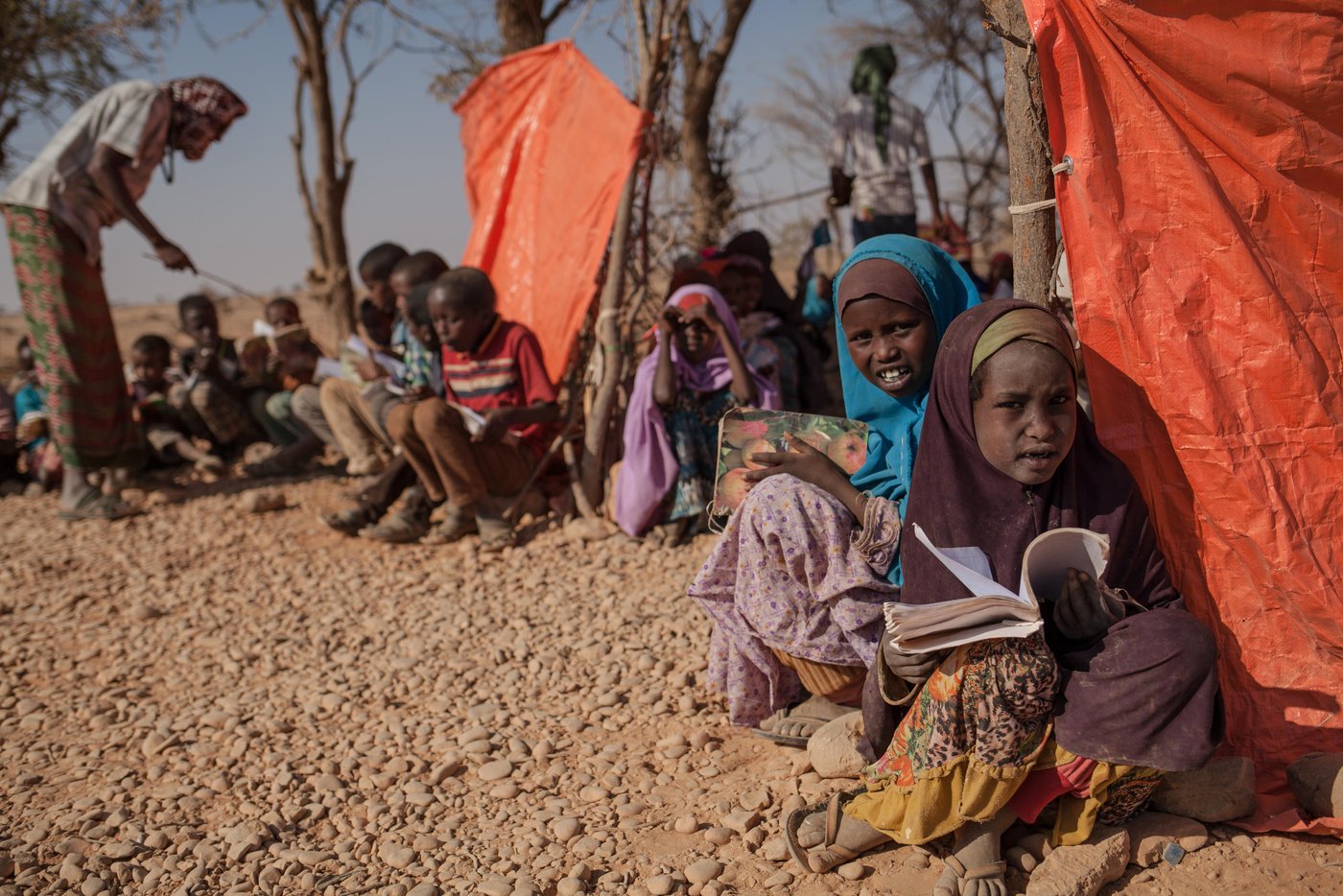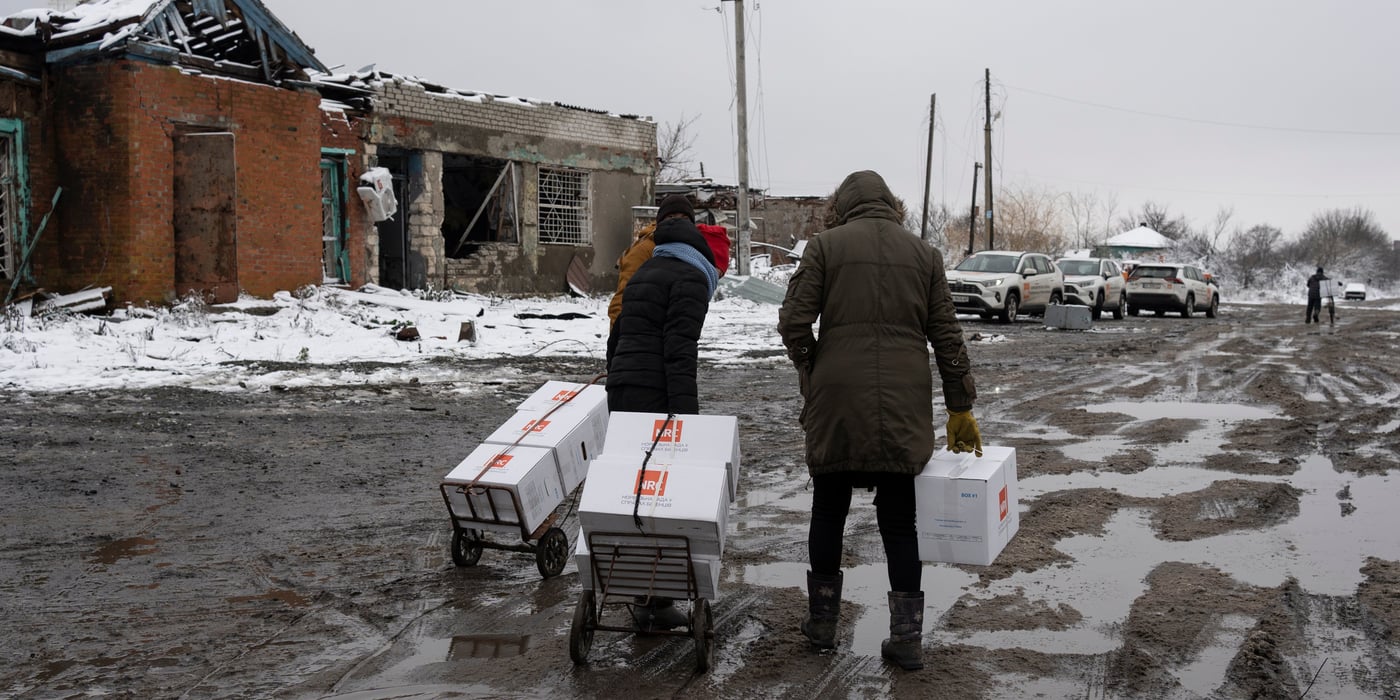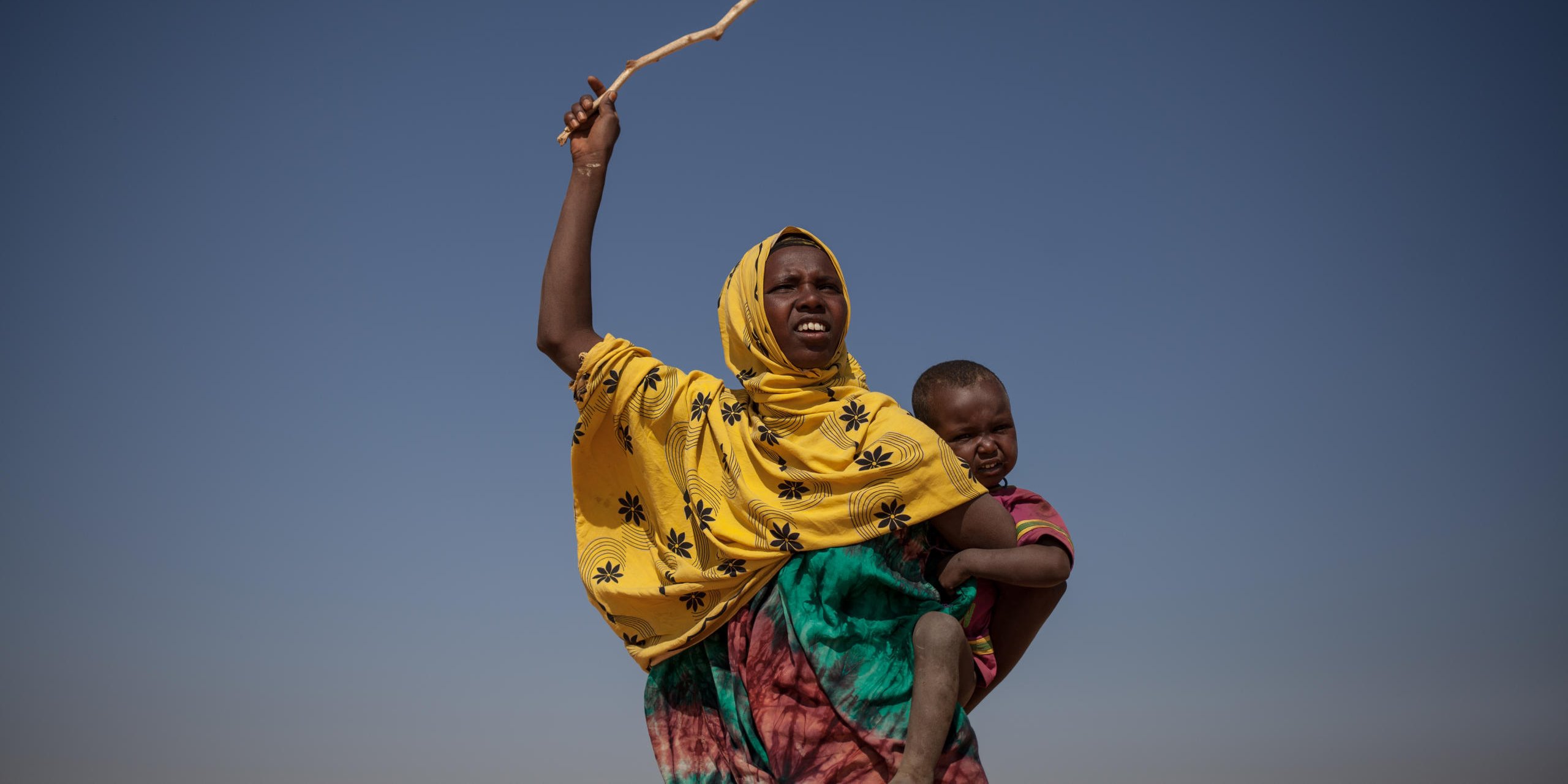
Mako Ogli
Mako Ogli (23) walks the two animals she has left. Two years ago her herd was 150 animals strong. With her 2-year-old son Mohamed, she spends the day searching for grass and water to keep her animals alive, cutting withered tree branches to feed them.
Before the drought, Mako lived in Ferdigab village. But when the water became scarce, she gathered her two children and walked for a day and night to reach Wereg village. But the drought followed them there, and she lost most of her livestock.
“We had no choice than to come back here. It is the only place I know with some water left,” says Mako.
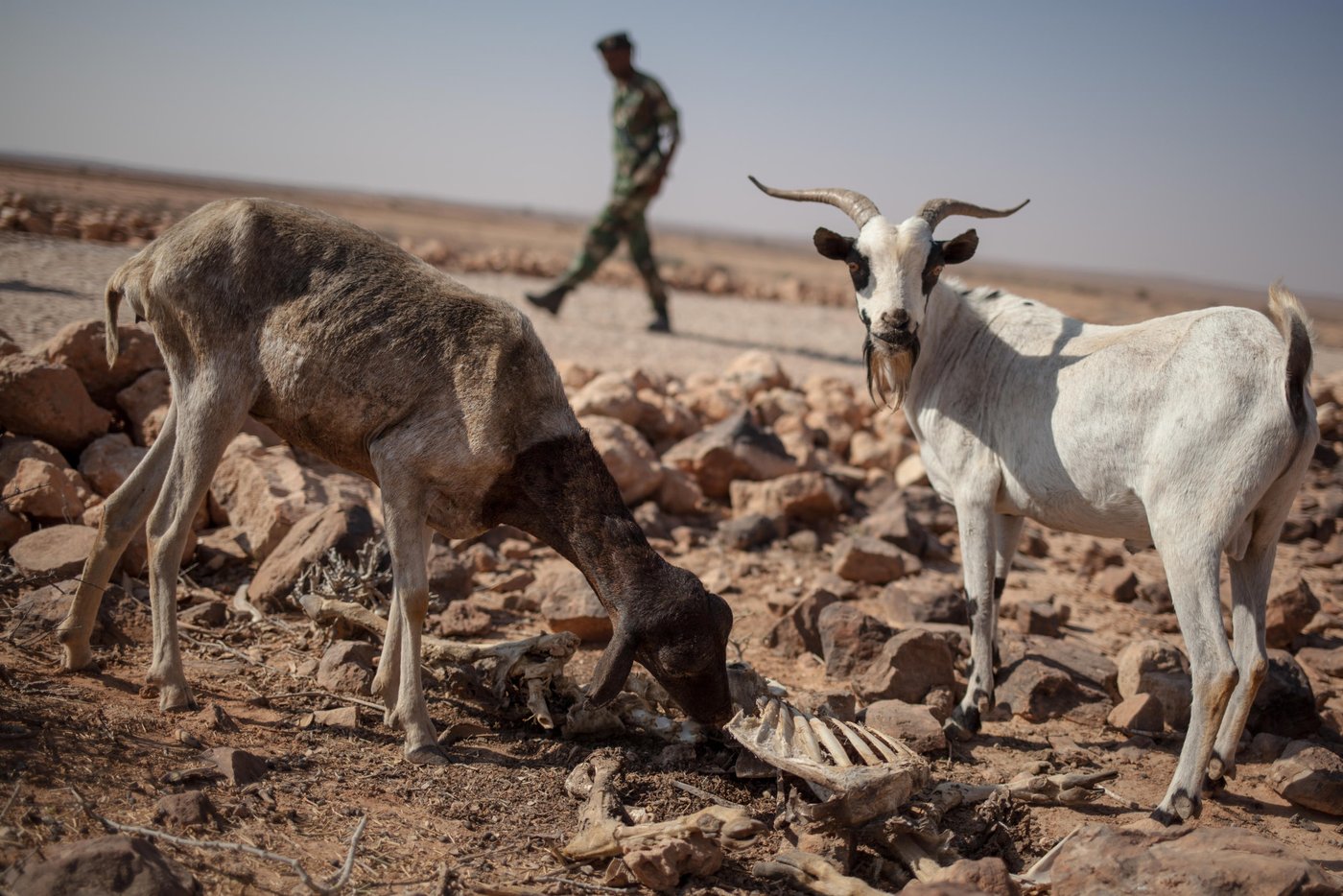
Efrah
“I know the water is not good, but we have no other option. We get sick, but at least we are not dehydrated.”
Efrah (20), mother of four children, walks to a water source near Shimbirale's internally displaced people's camp. In one of the two wells in the dry riverbed, she draws water that she will use to cook and drink.
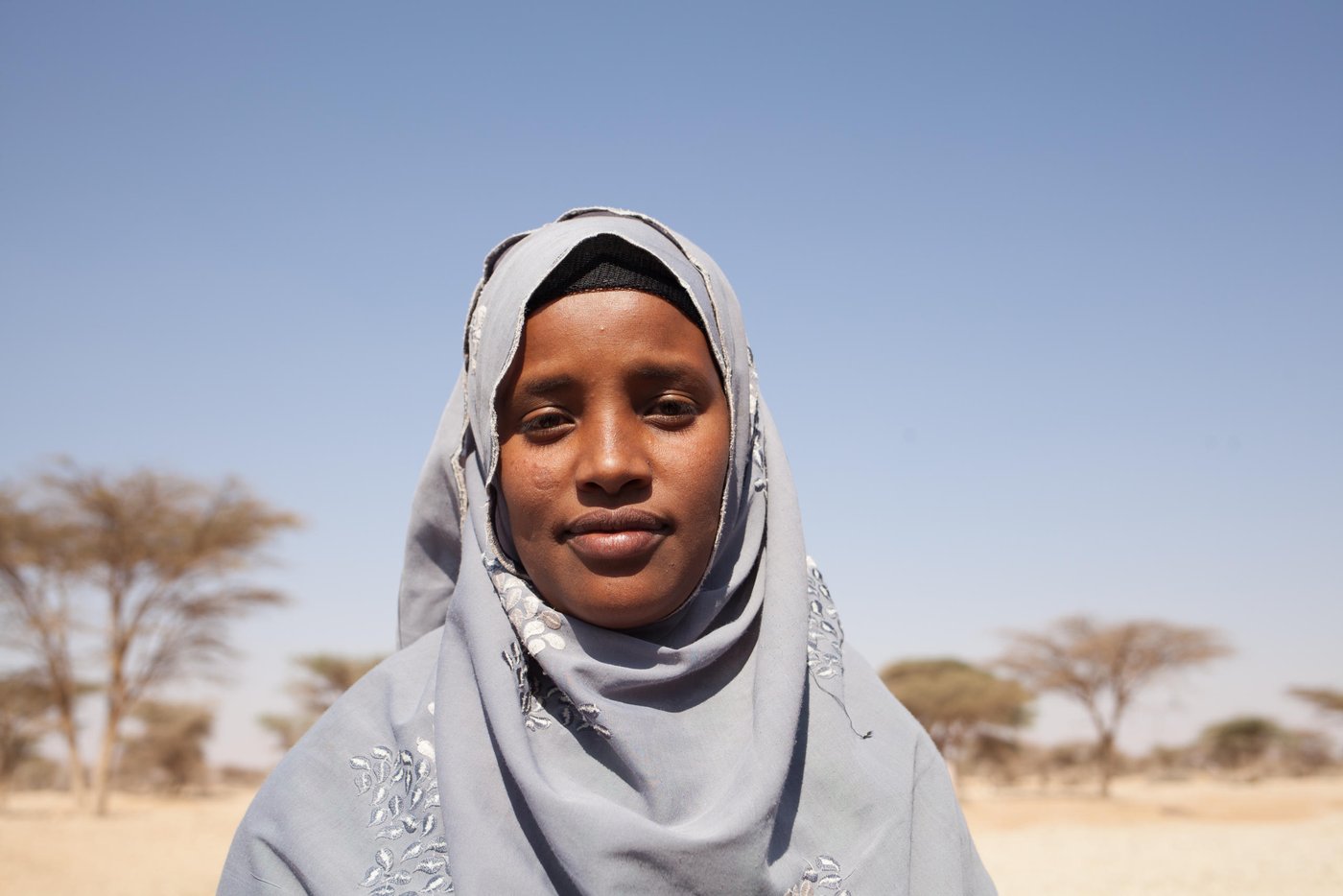
Like many of the camp’s 1,800 inhabitants, she has lost all her livestock to the drought.
I know the water is not good, but we have no other option. We get sick, but at least we are not dehydrated.Efrah (20), mother of four children.
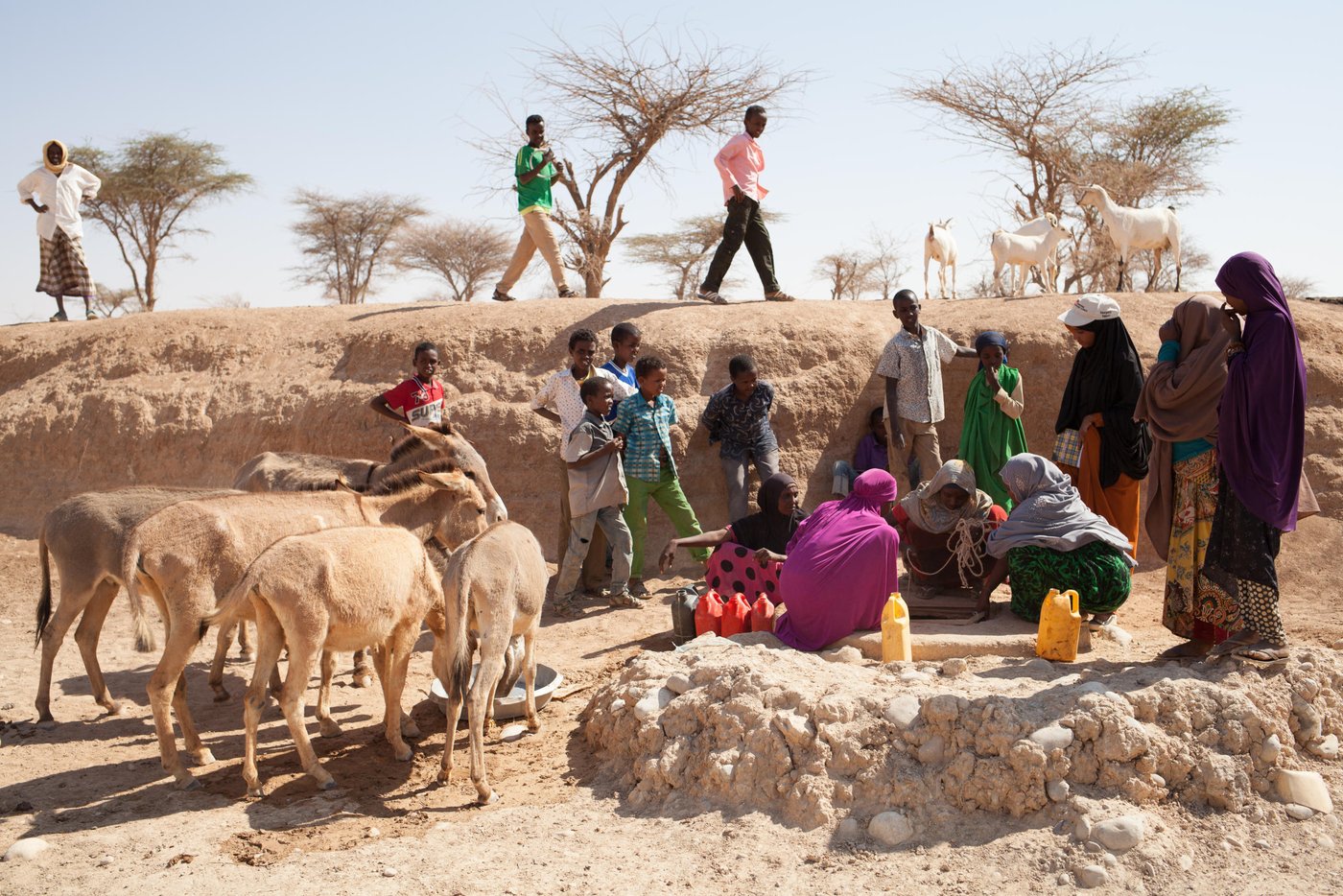
Gorsho
Gorsho (36) worries about her children that have been ill for three months. They suffer from malnutrition, fever, cold and diarrhoea. She has already lost her 4-year-old daughter, Fatouma.
“I am afraid that if the rain does not come it will get worse. I do not want to lose all my children because of hunger and malnutrition.”
The family has been forced to survive on one meal a day for the past four months.
“For the baby, I have only little milk to give. I eat almost nothing to leave more for my children. I think about them first.”
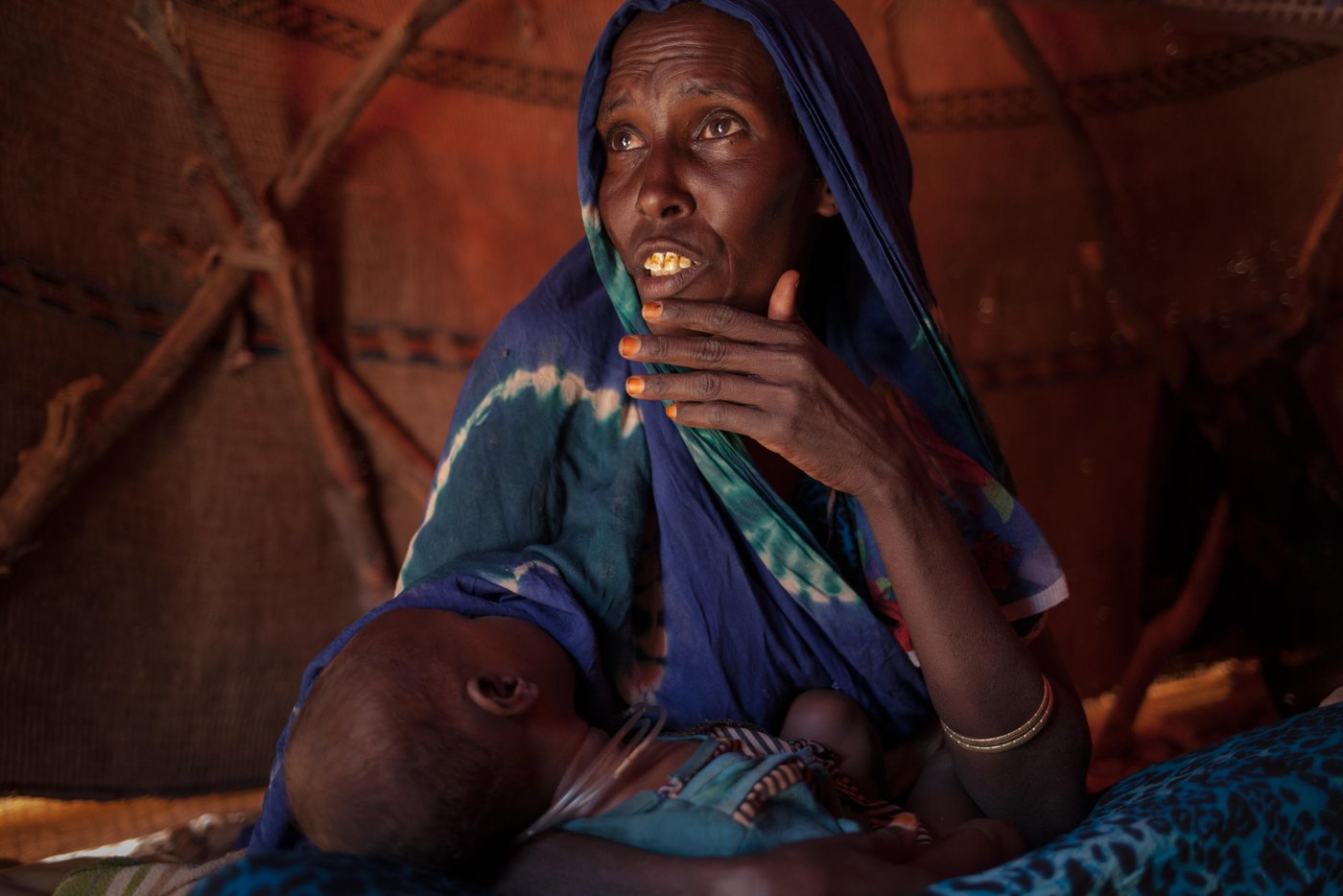
I am afraid that if the rain does not come it will get worse. I do not want to lose all my children because of hunger and malnutrition.Gorsho (36), mother of four children.
Hodosalat and Zacharie
“My child is feeling hungry, something he never experienced before. I did not think it was possible that such a thing would happen to us.”
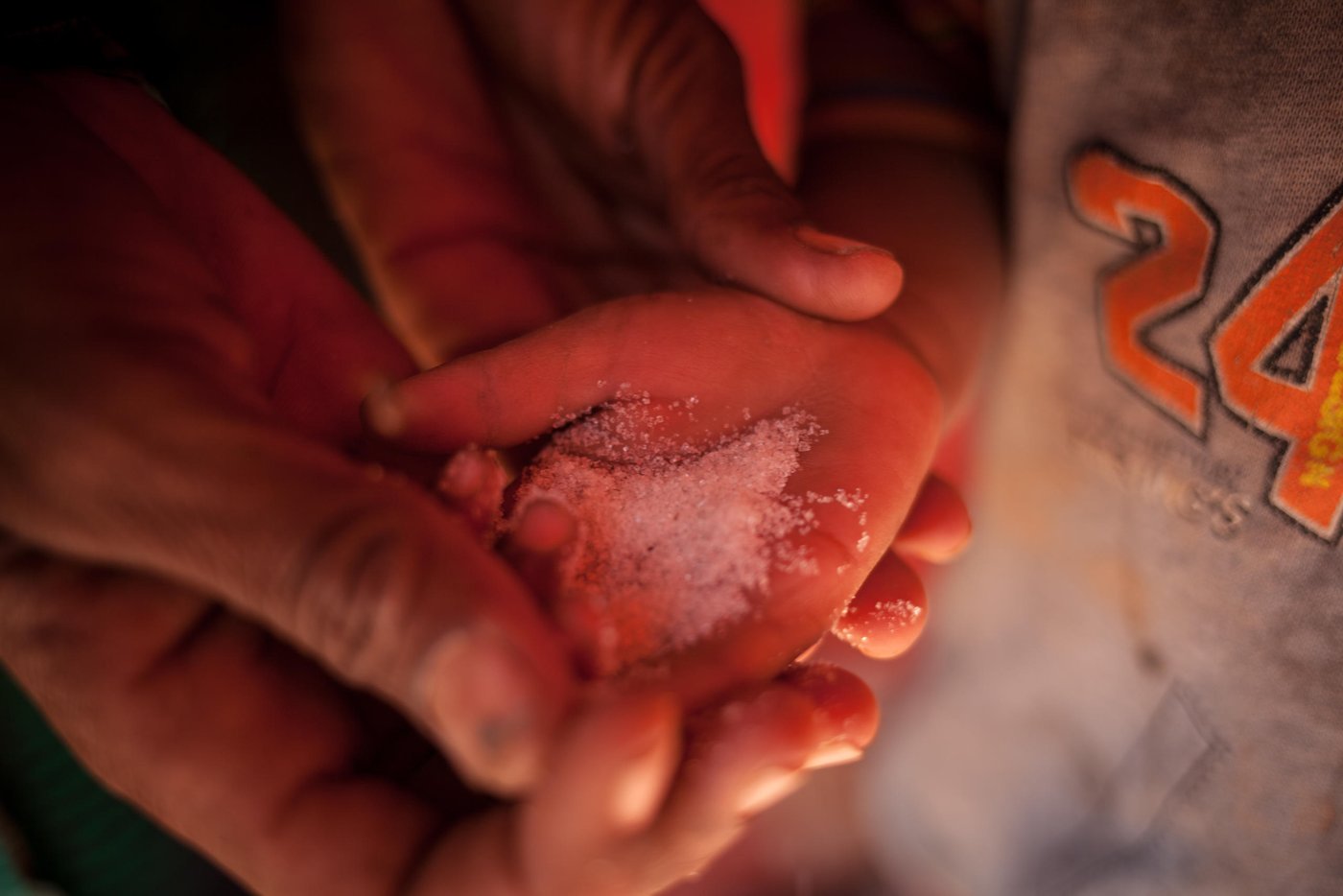
When we meet Hodosalat (21) and her two-year-old son Zacharie, they have been eating water with sugar for four days. They only have a small bag of sugar left, which was donated by neighbours.
After last year’s dry month of August, Hodosalat’s animals were too weak to walk to a water point. Without transport or camels to carry water, she was unable to save her livestock. Helplessly, she watched them die.
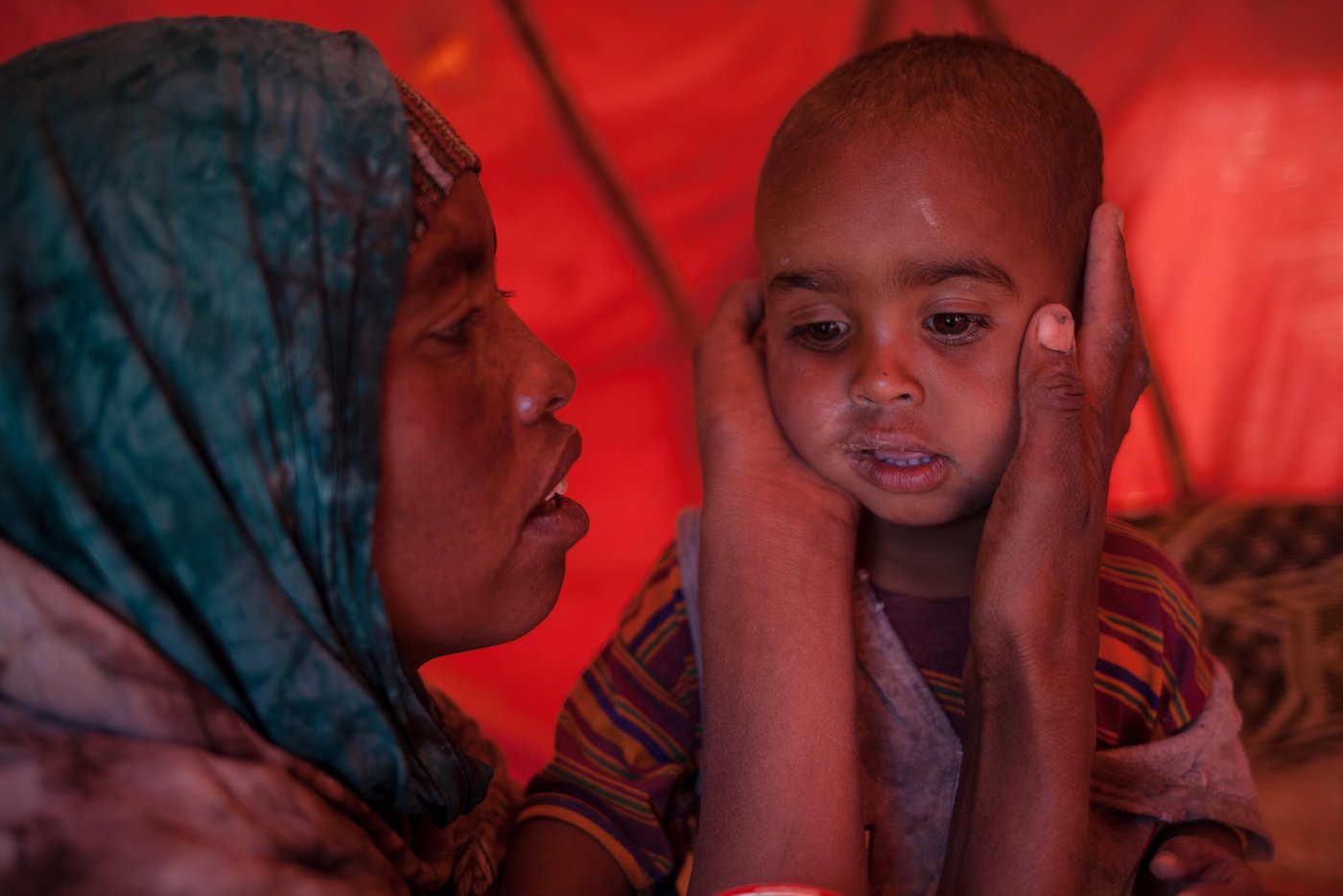
When January arrived, Hodosalat had nothing left. Hungry and dehydrated, she and her son moved to Gembi camp for displaced people, hoping to receive some support. So far, her neighbours have shared the little they receive with her and her son.
Jinoy Canab
Jinoy Canab’s family lost 200 animals to the drought.
“Two years ago, it was the first failure of the rain season. We were living in the west. We walked day and night for a week with the seven children on a camel to get closer to Garadag, where there was a source of water,” Jinoy recalls.
“We took patience from God but the rain never came. We needed to leave but did not have the money to pay a truck, so we walked to Shimbirale. It took two days and two nights. Now, we live in distress. We are beggars.
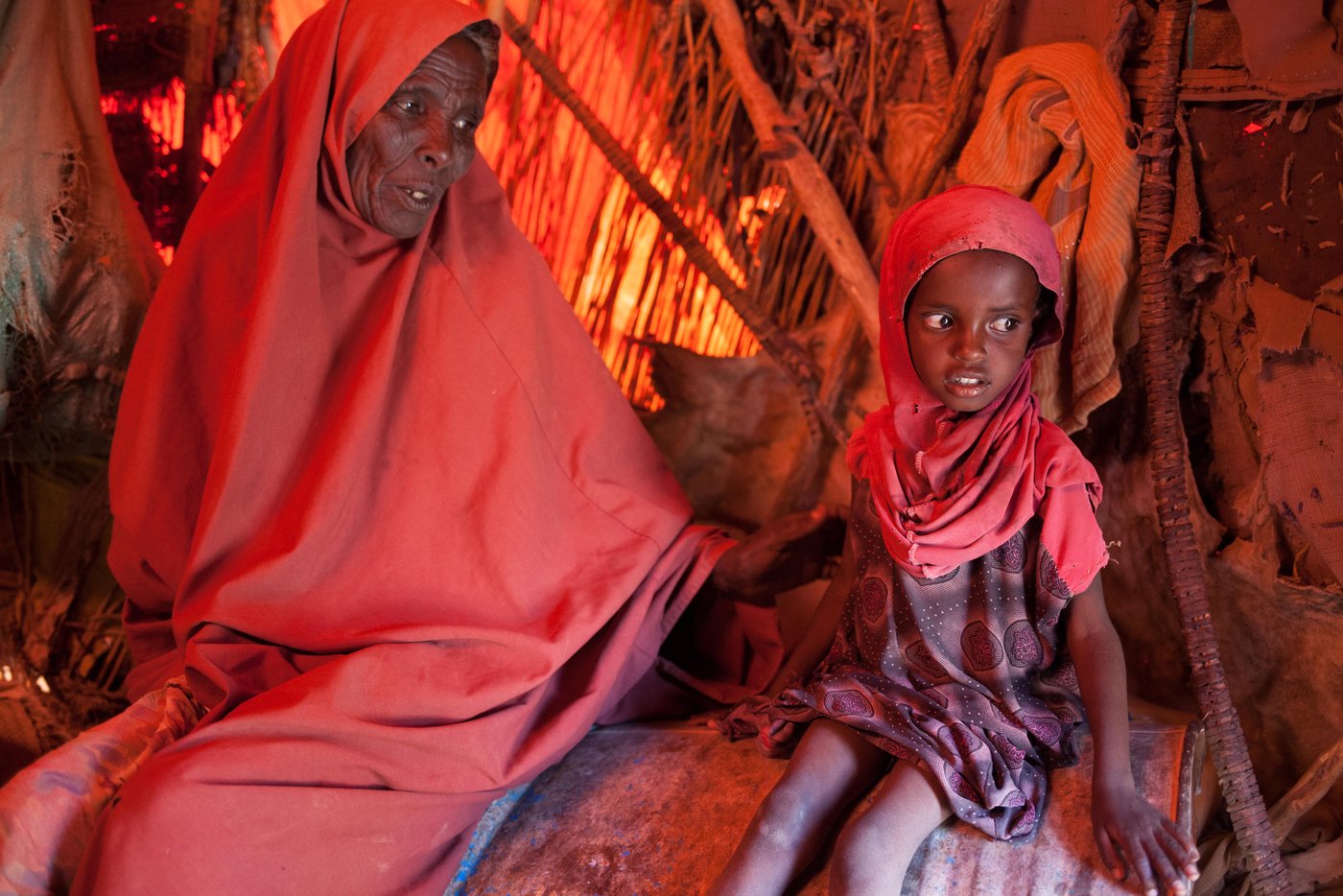
The Norwegian Refugee Council has provided Jinoy and her family with cash transfers, which allows them to buy food for her children, and pay their debt to the food vendor.
But hunger has already affected her grandchildren. Jinoy’s granddaughter Muna barely walks. Now, Jinoy tells her family not to run and to stay inside in the shade to save their strength.
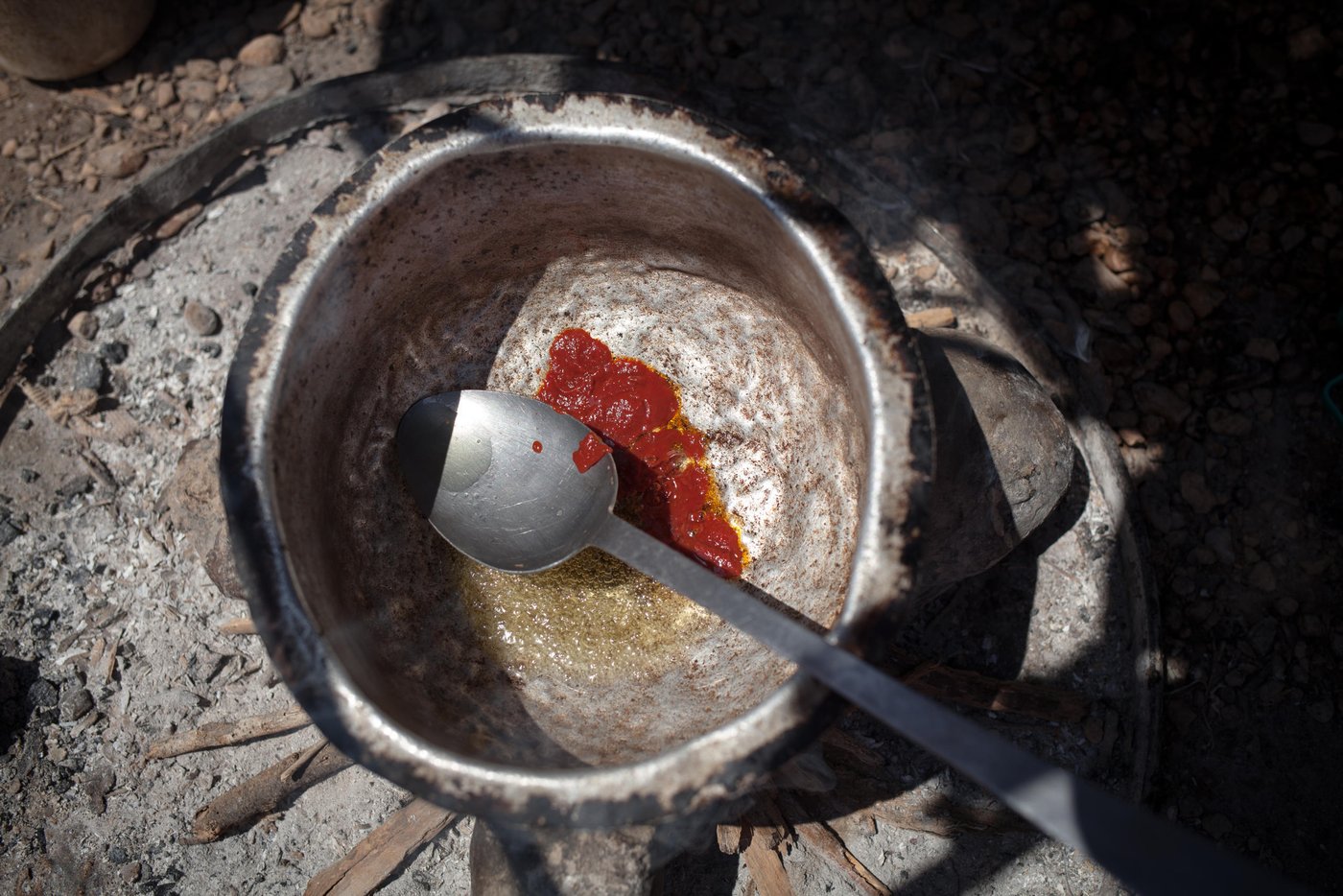
Two consecutive seasons without rain have forced a staggering 615,000 people to abandon their homes since last November, in search of food and water.
The Norwegian Refugee Council is working continuously to ensure clean water and cash support for internally displaced people in Somaliland.
